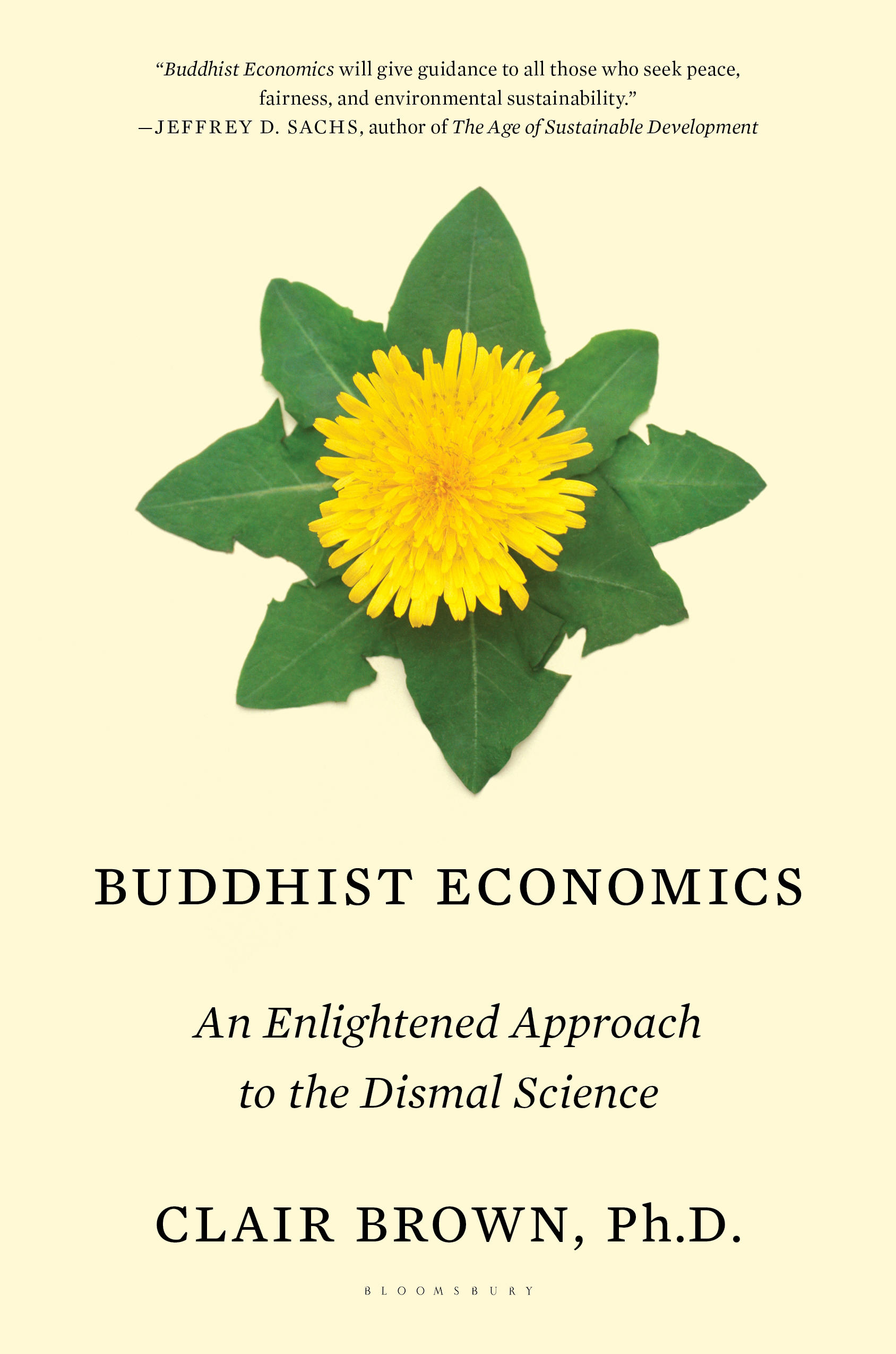Derek Caelin apžvelgė autoriaus Clair Brown knygą Buddhist Economics
Economics and Buddhism made tangible together
5 žvaigždutės
I've recently tried to correct two mistakes I made in college. The first was in assuming that economics was a) esoteric and b) only for "money people" - business school types, in other words. The second was in failing to pay significant attention in a class I took on Buddhism (my teacher once called me out on the fact that my copy of our class' sole book had clearly never been opened). Clair Brown's "Buddhist Economics" approaches both of these reputedly ineffable subjects with simple, clear, and powerful language.
Simply put: the tenants of Buddhism - the acknowledgement that we are interdependent beings, that much of our suffering is derived from our desire to gain more wealth, more possessions, more status, more experiences - are shown to be relevent when making decisions at a personal and societal level to promote happy, full lives.
Meanwhile, the book stresses that …
I've recently tried to correct two mistakes I made in college. The first was in assuming that economics was a) esoteric and b) only for "money people" - business school types, in other words. The second was in failing to pay significant attention in a class I took on Buddhism (my teacher once called me out on the fact that my copy of our class' sole book had clearly never been opened). Clair Brown's "Buddhist Economics" approaches both of these reputedly ineffable subjects with simple, clear, and powerful language.
Simply put: the tenants of Buddhism - the acknowledgement that we are interdependent beings, that much of our suffering is derived from our desire to gain more wealth, more possessions, more status, more experiences - are shown to be relevent when making decisions at a personal and societal level to promote happy, full lives.
Meanwhile, the book stresses that economics is not, and should not be, the sole domain of wonks and businesspeople. Commerce, the flow of resources, our value for labor - all of these things matter to everyoneregardless of socioeconomic status. Our economic decisions directly impact the quality of our lives and the health of our planet, and it's reasonable for us all to be engaged in economic decisionmaking.
"Buddhist Economics", then, applies Buddhist principles to economic policy and describes steps we can take to create a more pleasant and sustainable world. Brown discusses everything from indicies for measuring economic growth to tax structures, as well as steps we can personally take to realize this goal.
I'll also add that I appreciate the focus on climate and sustainability. I've spent the past few years obsessed with climate, sustainable development, regenerative agriculture, and any number of other "green" issues. The health of the environment is a major focus of the book, and is discussed both from a Buddhist perspective (the acknowledgement of the interconnectedness of all living things) and an economic perspective (descriptions of "natural capital", for example.)
Good read. I recommend.

